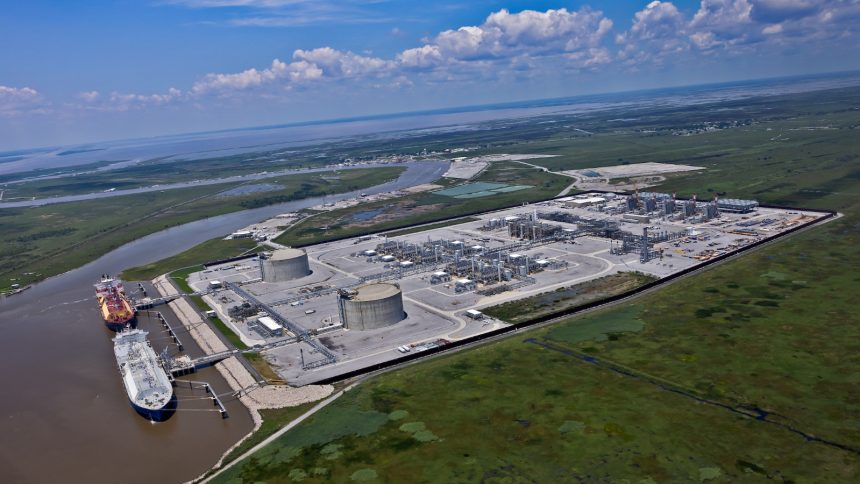The following story was originally published by Floodlight, a nonprofit newsroom that investigates the powerful interests stalling climate action. Despite a well-publicized pause on approving liquefied natural gas terminals in the United States, a federal regulatory agency has given the green light for the construction of the nation’s largest LNG terminal. The two-to-one vote by the Federal Energy Regulatory Commission to approve the $10 billion Calcasieu Pass 2 in Cameron Parish, Louisiana, marks a significant milestone for developer Venture Global. While the approval does not guarantee immediate construction, Venture Global is awaiting the Department of Energy’s approval to export the fuel to select countries, a decision that was paused by the Biden Administration in January. Company CEO Mike Sabel expressed the project’s importance in enhancing global energy security and facilitating the energy transition, while also creating job opportunities and driving economic growth in Louisiana and across the United States. Despite the approval, advocates are prepared to challenge the decision in court, with community leader Roishetta Ozane emphasizing the local opposition to the project. Outgoing FERC Commissioner Allison Clements, the sole dissenter in the vote, highlighted concerns over the facility’s impact on nearby communities and climate change. The approval of the terminal, she warned, could lead to the equivalent of adding 1.8 million gasoline-powered cars to the roads annually. Environmentalists and fishermen along the Gulf Coast view the decision as a setback for the environment and local communities, as CP2 has been termed a “carbon mega bomb” with the potential to significantly increase LNG exports. The Biden Administration imposed a pause on new LNG terminal approvals to assess the impacts of methane exports, a move that has faced criticism from industry players and politicians. While the moratorium aims to evaluate whether methane exports to non-free trade countries are in the public interest, concerns persist about the environmental, economic, and health risks associated with a rapid expansion of LNG facilities. FERC’s decision to approve CP2 was based on an environmental impact statement completed last year, which indicated that any adverse effects could be mitigated. While some argue that LNG exports can help offset carbon emissions from coal plants in other countries, studies have questioned the environmental benefits of such a shift. The dispute over CP2 reflects broader tensions surrounding energy policies, climate change mitigation, and economic development. As the project moves forward, it remains to be seen how the Biden Administration and stakeholders will navigate the complex landscape of LNG exports and their implications for the environment and local communities.






